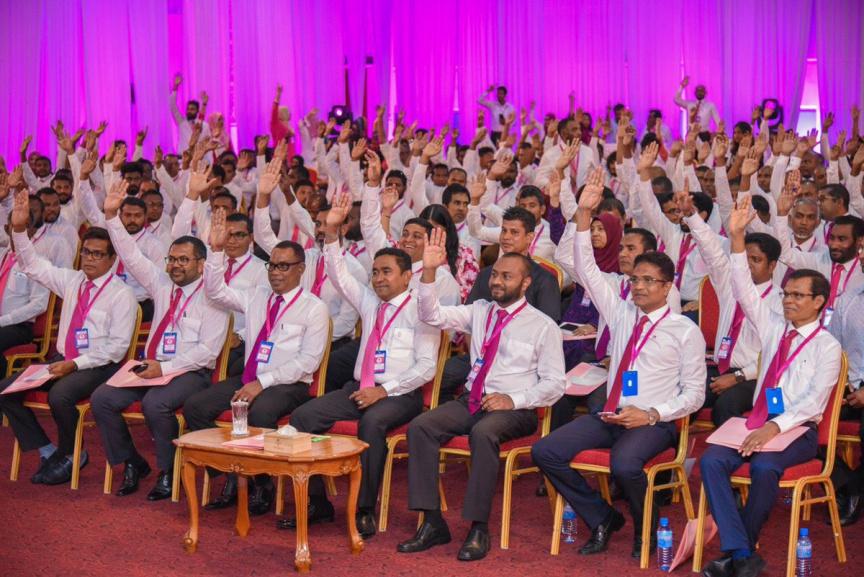
PPM members vote during its extraordinary congress at Dharubaaruge on September 28, 2018. (Photo/Twitter/PPM)
Supreme Court has ruled to endorse the extraordinary congress held by former ruling party, Progressive Party of Maldives (PPM) on September 28, 2018.
Supreme Court issued its ruling in the appeal filed by Elections Commission (EC) this Wednesday. It sided with the High Court’s ruling, and found EC had no substantial legal grounds to support its decision not to endorse the congress.
EC had argued at the court that the congress had been riddled with violations of the party’s bylaws, and was partaken by a number of non-PPM members; including 13 people registered to other political parties and 29 people not registered to any political party.
Supreme Court noted in its ruling the EC failed to specify which political parties the 13 people were registered to.
268 people had taken part in the extraordinary congress. And EC had argued it had been unable to verify which political parties 49 of the participants were registered to due to unavailability of their address and national identity card numbers.
Supreme Court said it found EC made no attempt to obtain information regarding the 49 participants from PPM, and the 49 participants would not affect the result of any of the votes taken during the congress.
EC had also argued that PPM bylaws called for polling booths to offer privacy to voters, but that polling booths used at the congress were mobile, and votes taken by carrying by polling booth to each voter.
Supreme Court said the PPM bylaws did not specify where polling booths should be kept, and that minutes of the congress show voters were given prior instructions not to show their ballot papers to anyone, and be careful not to show how they votes to ensure privacy.
PPM during its extraordinary congress, elected four deputy leaders; three males and one female.
EC had argued it was an infraction of Article 35 of the bylaws, which state the number of deputy leaders of PPM as three.
The court said that it had been a typing error, and that Article 29 of the PPM bylaws state the number of deputy leaders at the party as four.
The Supreme Court ruled that EC’s arguments at court had no substantial legal basis. And, with the unanimous consensus of all judges, endorsed the validity of the extraordinary congress.
The extraordinary congress had elected former Maldivian President Abdulla Yameen Abdul Gayoom as the party’s leader.